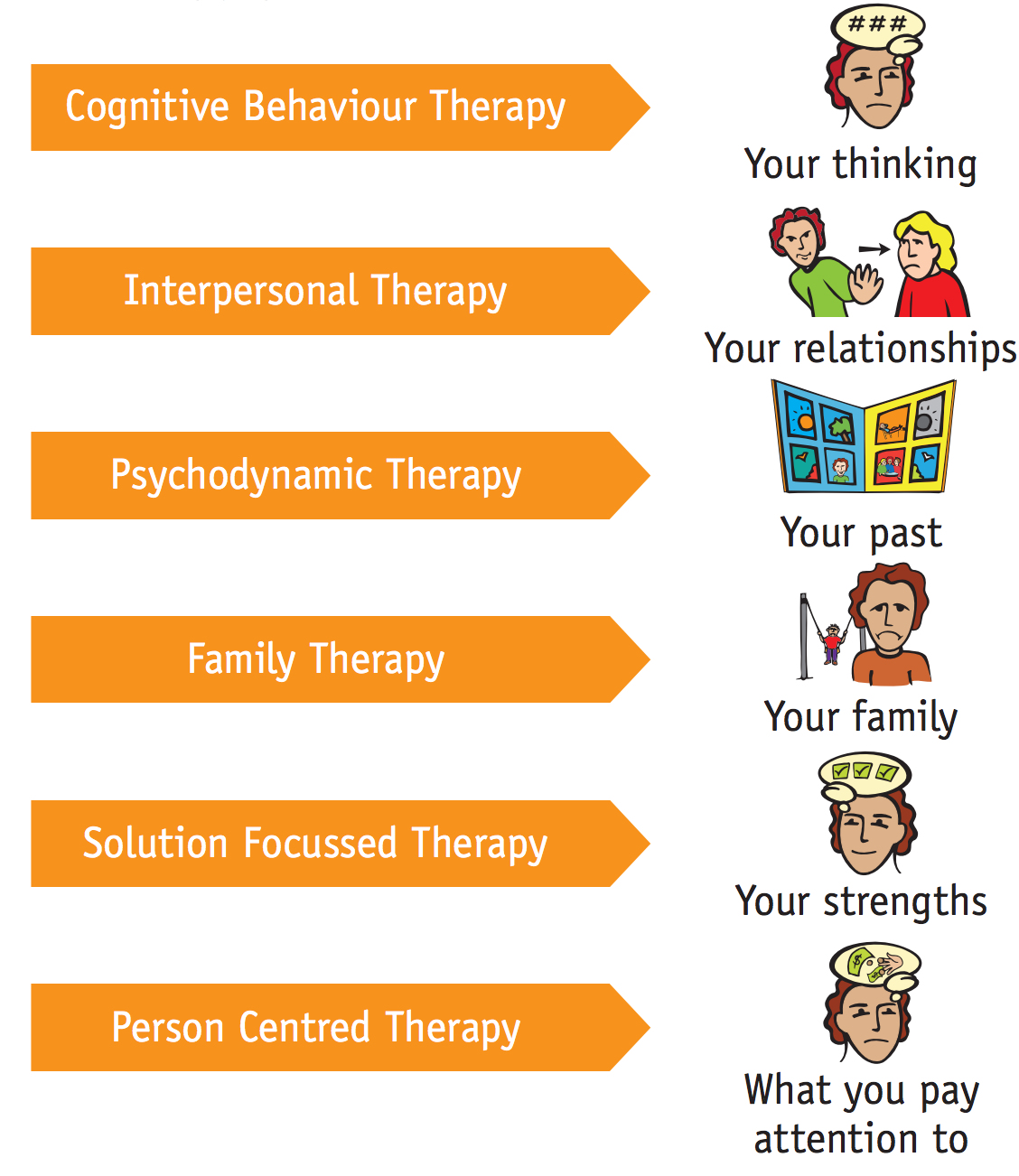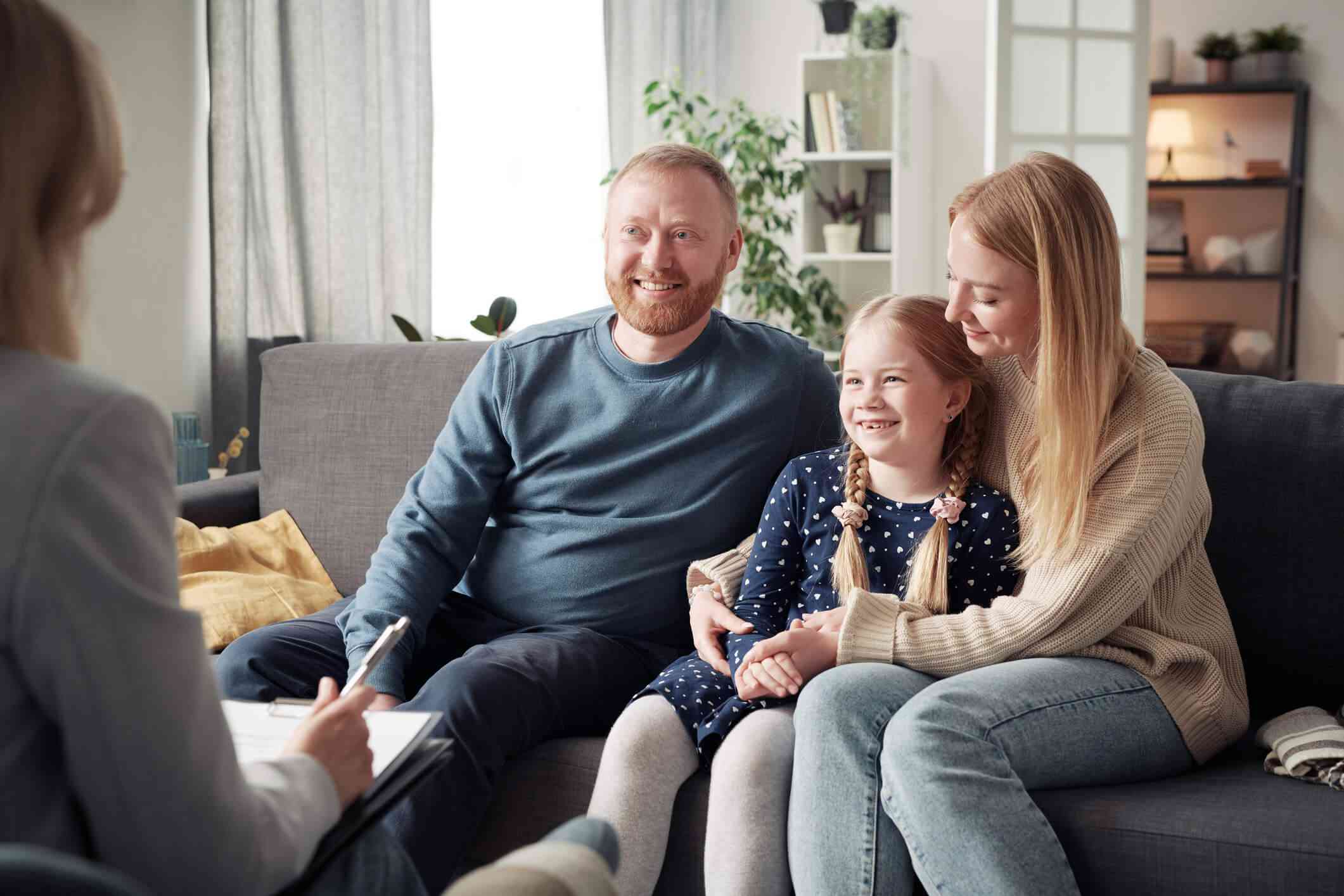adhd counselling: What Parents Need to Know
A Comprehensive Guide to the Numerous Kinds Of Therapy and Their Influence
Therapy includes a range of healing methods, each made to fulfill one-of-a-kind psychological health and wellness demands. From the structured methods of Cognitive-Behavioral Therapy to the understanding nature of Person-Centered Treatment, these methods use distinct paths to individual growth. Family therapy and Dialectical Behavior modification provide added structures for recovery, while team therapy cultivates community support. Recognizing these diverse techniques can brighten their extensive influence on individual health. What remains to be discovered are the intricacies of each technique.

Understanding Cognitive-Behavioral Therapy (CBT)
Although several restorative techniques exist, Cognitive-Behavioral Therapy (CBT) stands apart because of its organized, ambitious nature. This kind of treatment is based upon the premise that ideas, feelings, and habits are interconnected, and by altering negative idea patterns, people can change their psychological feedbacks and actions. CBT employs various techniques, such as cognitive restructuring, which assists clients identify and test altered beliefs. Behavioral activation encourages involvement in enjoyable tasks to fight depression.
Commonly, CBT is a temporary therapy, usually enduring in between 12 to 20 sessions, making it accessible for those looking for fast outcomes. Its efficiency has actually been well-documented in treating anxiousness disorders, anxiety, and other psychological health problems. The specialist's function is to lead clients through exercises and research projects, cultivating self-awareness and promoting lasting coping approaches. This practical technique encourages people to take control of their psychological health, inevitably causing boosted life fulfillment.
Checking Out Person-Centered Therapy
Person-Centered Therapy, created by Carl Rogers, uses a contrasting technique to Cognitive-Behavioral Therapy by stressing the customer's subjective experience. This healing model focuses on the individual's perspective, cultivating a setting of compassion, genuine favorable respect, and credibility. By permitting customers to discover their feelings and ideas without judgment, therapists assist in individual development and self-discovery.
The core tenet of Person-Centered Therapy is the belief that people have the fundamental capacity for self-healing and individual development. In this setup, the specialist functions as an encouraging overview as opposed to a regulation authority, encouraging clients to organize their own trip. This strategy is especially reliable for those facing issues such as low self-esteem, anxiety, or anxiety, as it empowers them to challenge and recognize their emotions. Ultimately, Person-Centered Treatment grows a solid restorative alliance, cultivating trust fund and visibility crucial for purposeful change.
The Duty of Family Therapy in Recovery
Family therapy works as a vital element in the recovery procedure for people and their relationships. This healing approach concentrates on improving communication, settling problems, and cultivating much deeper links amongst household participants. By addressing useless characteristics, family therapy urges each participant to share their ideas and sensations in a safe environment, promoting understanding and empathy.

The impact of household therapy expands past the sessions, as improved relationships can result in boosted emotional health for all involved. In general, family treatment plays a crucial duty in recovery by promoting unity, strength, and common support amongst relative, inevitably directing them toward a healthier, more meeting life together.
Unpacking Dialectical Behavior Modification (DBT)
Structure on the foundation of therapeutic methods that boost emotional well-being, Dialectical Behavior modification (DBT) provides a structured structure for individuals having problem with intense feelings and behavior difficulties. Established by Marsha Linehan, DBT incorporates cognitive-behavioral techniques with mindfulness techniques, intending to aid clients manage frustrating sensations and boost interpersonal effectiveness.
The therapy is especially beneficial for those diagnosed with Borderline Character Condition but is also applicable to a variety of other mental wellness concerns. adhd counselling. DBT includes private therapy sessions and skills training groups, concentrating on 4 vital skill sets: mindfulness, distress tolerance, feeling guideline, and social effectiveness
The Advantages of Group Counselling Sessions
While specific treatment supplies beneficial understandings, team counseling sessions use distinct benefits that can significantly enhance the healing experience. One vital benefit is the feeling of community that arises among participants. Individuals usually find comfort in sharing their experiences with others encountering comparable difficulties, fostering a helpful atmosphere that reduces feelings of seclusion.
Group sessions urge diverse perspectives, allowing individuals to discover from each other's coping techniques and understandings. This collective knowledge can result in boosted problem-solving capabilities and a wider understanding of individual concerns.
Additionally, group therapy often promotes liability, as members motivate one an additional to seek their objectives and stick to their dedications. The cost-effectiveness of team treatment makes it an easily accessible choice for many individuals looking for support. In general, the collective nature of group therapy sessions can substantially improve the therapeutic trip.
Frequently Asked Inquiries
What Qualifications Do Therapists Need to Exercise Counseling?
Specialists generally require a relevant level in psychology or counseling, along with supervised professional experience. In addition, they have to acquire proper licensure or accreditation to practice legitimately, guaranteeing adherence to specialist requirements and honest standards.
Exactly how Do I Pick the Right Kind Of Treatment for Me?
Picking the best type of treatment includes reviewing personal needs, discovering various techniques, thinking about specialist specializeds, and looking for recommendations. Recognizing individual objectives and choices can greatly boost the effectiveness and contentment of the healing experience.

Are Online Counseling Procedure as Effective as In-Person Ones?
The effectiveness of on-line therapy sessions contrasted to in-person ones usually relies on specific choices and circumstances. Research indicates that both approaches can yield positive results, though some might discover greater comfort check here in face-to-face interactions.
Just How Lengthy Does Therapy Normally Last?

What Should I Expect During My Initial Counseling Session?
Throughout the very first counseling session, customers can anticipate an introduction, conversation of their problems, facility of objectives, and an introduction of the counseling procedure - relationship therapy. This first conference intends to build rapport and guarantee comfort